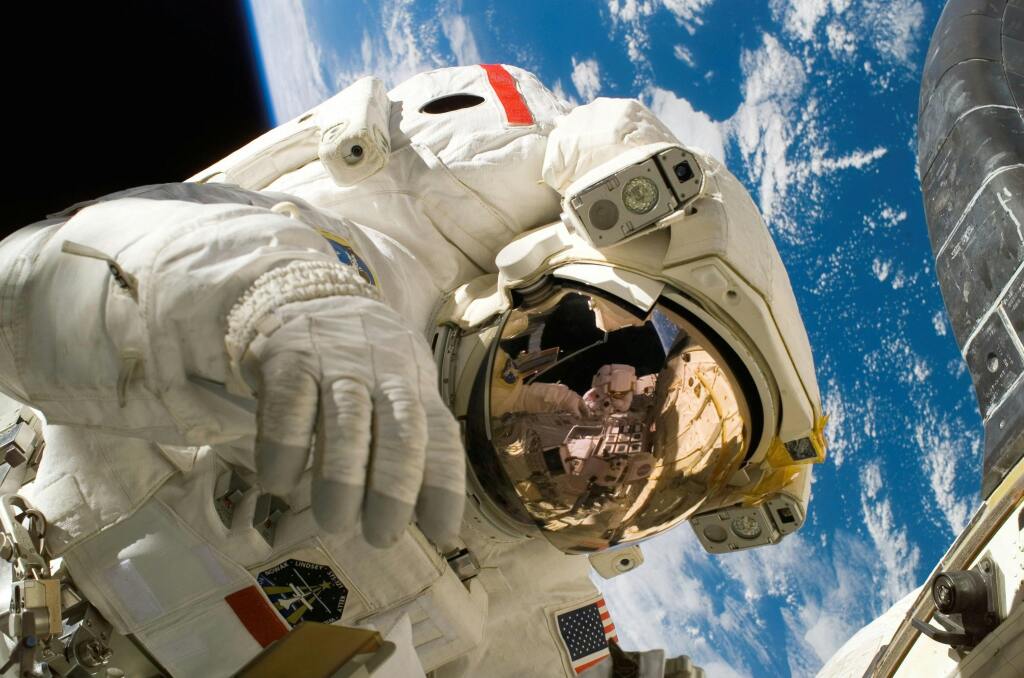Space travel is one of humanity’s greatest achievements, but it comes with unexpected health risks—including those that affect your mouth.
While astronauts float among the stars, their teeth and gums are facing unique challenges that most of us take for granted here on Earth.
Let’s explore how life in microgravity impacts oral health, and what scientists and astronauts are doing to protect those million-dollar smiles in space. 🦷✨
🌌 Why Oral Health Matters in Space
In the confined, high-stakes environment of space, even a minor dental issue can become a serious medical emergency.
- There’s no dentist on the International Space Station (ISS).
- Dental infections could impact an astronaut’s ability to eat, speak, or concentrate.
- Delayed treatment could risk the entire mission.
That’s why understanding how space affects oral health is critical for long-duration missions, including future trips to Mars.
🛸 The Effects of Microgravity on Teeth and Gums
1. Bone Loss (Including Jawbone Density)
In space, astronauts lose bone mass due to the lack of gravity.
- This includes the alveolar bone that supports the teeth.
- Over time, bone loss can weaken the jaw, increase tooth mobility, or even cause teeth to loosen.
2. Saliva Flow Reduction
Saliva plays a crucial role in:
- Neutralizing acids
- Washing away bacteria
- Remineralizing enamel
But in microgravity:
- Saliva production may decrease, leading to dry mouth and increased cavity risk.
- Changes in fluid distribution can also affect saliva composition.
3. Increased Bacterial Growth
Space affects the immune system—it weakens it.
- Bacteria in the mouth become more aggressive in space.
- Studies show that plaque builds up faster, and gum inflammation is more likely.
Astronauts must brush religiously to prevent gum disease or infections.
4. Diet and Sugary Space Snacks
Astronaut food is often high in carbohydrates and sugar for energy and preservation.
- Frequent snacking and sticky foods can accelerate tooth decay.
- Limited water supply may discourage frequent mouth rinsing.
🧰 Preventive Measures: How Astronauts Protect Their Oral Health
NASA and other space agencies take oral health seriously. Here’s how they prepare:
✔️ Pre-Mission Dental Clearance
Astronauts undergo extensive dental screenings before liftoff.
- Cavities are filled.
- Wisdom teeth may be removed.
- Existing dental work is stabilized.
✔️ Emergency Dental Kits
The ISS is stocked with tools for basic dental procedures, including:
- Temporary fillings
- Antibiotics
- Tooth extraction kits
- Dental mirrors and painkillers
Astronauts receive basic training on how to assist one another during a dental emergency.
✔️ Space-Compatible Toothpaste
Toothpaste in space is swallowed, not spit out (spit would float).
Non-foaming and safe-to-ingest formulas are used to avoid contamination.
🌍 Earth Research Helping Space Missions (and Vice Versa)
Studying oral health in space offers clues about health challenges here on Earth:
- Bone loss in microgravity mirrors osteoporosis.
- Immune system decline mimics aging and certain diseases.
- New materials and sterilization techniques developed for space are improving dentistry tools on Earth.
🔮 What About the Future? Deep-Space Dentistry
As space missions get longer, oral health becomes even more critical.
Challenges for Mars Missions:
- A round-trip to Mars could take 2–3 years.
- No dental evacuations or real-time consultations.
- Autonomous care and AI-assisted diagnostics may be necessary.
Future Solutions:
- 3D-printed dental tools and restorations
- Robotic assistants guided by Earth-based professionals
- Smart mouthguards to monitor bacteria and pH levels
❓ FAQs About Space and Oral Health
1. Do astronauts brush their teeth in space?
Yes! They use special toothpaste and a small amount of water. They swallow the paste or wipe it with a towel—no spitting allowed.
2. Can you get a cavity in space?
Yes. With less saliva and immune suppression, the risk may be higher, especially on long missions.
3. Has anyone ever had a dental emergency in space?
There have been a few minor issues, but no extractions or surgeries so far—thanks to strict pre-mission screenings.
4. How do astronauts get dental checkups?
They don’t while in orbit. They’re thoroughly checked before launch and monitored from Earth if symptoms arise.
5. Could astronauts use a dental robot in space?
That’s the vision! Robotic systems may someday handle extractions or fillings with remote assistance.
🧠 Final Thoughts
From saliva to bone density, space changes everything—even how we care for our teeth.
As humanity prepares for deep-space travel, keeping astronauts’ oral health intact is essential—not just for comfort, but for survival.
Because in space, a toothache isn’t just annoying—it’s a mission risk.
















